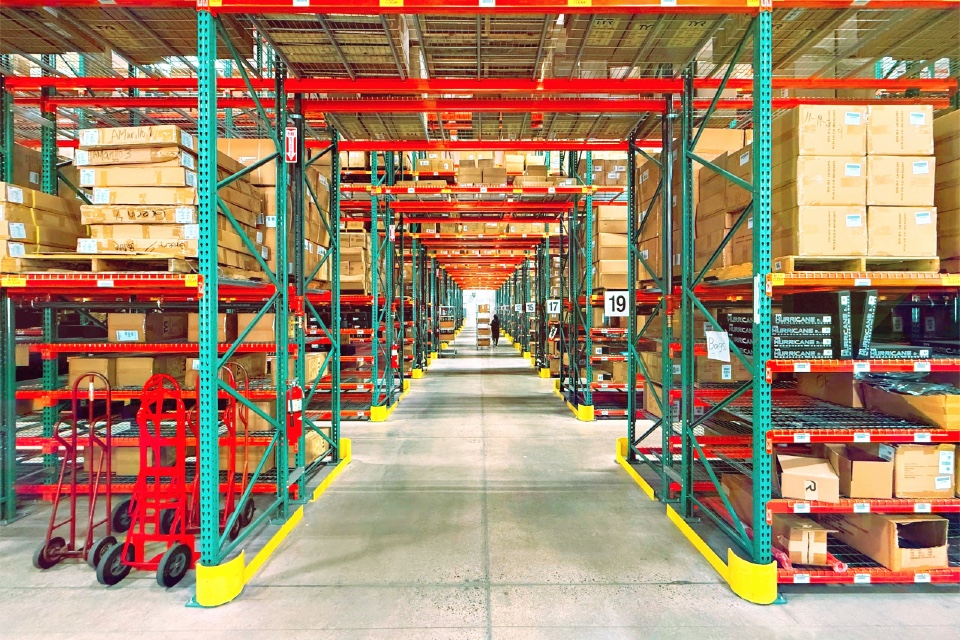The ecommerce landscape moves quickly, and, in 2024 customer expectations for speedy and reliable deliveries have never been higher. In an attempt to satisfy customers’ needs, warehouse management has become increasingly important, making efficient warehouse operations a crucial aspect of ecommerce. A successful supply chain hinges on strong, well-managed warehouse management, overseeing everything from inventory intake to order dispatch, regardless of the size of the company.
The Linnworks State of Commerce Ops Report offers valuable insights into the challenges and priorities facing retailers and consumers in 2024. Retailers and consumers were surveyed in order to shed light on key trends, preferences, and areas of focus that have a direct impact on warehouse optimisation. As the ecommerce landscape evolves, warehouse efficiency plays a pivotal role in meeting consumer expectations and driving profitability. To help businesses navigate this landscape effectively, here are four tips to optimise warehouse operations and ensure sustained success.
Warehouse Insights Come from Harnessing Data Collection
Effective data collection empowers warehouse managers to pinpoint areas of strength and areas needing improvement, enabling informed decision-making. Despite the report’s findings, many online retailers still use traditional integrations (42%) and custom-built integrations (46%), these statistics highlight the reliance on outdated methods that could compromise efficiency and accuracy.
Effective data collection empowers warehouse managers to pinpoint areas of strength and areas needing improvement, enabling informed decision-making.. When brands or stores take on the task of integrating their own systems or creating custom software, they risk wasting resources that could be better spent elsewhere. These resources, often not crucial to the brand’s uniqueness, should be focused on building what sets the brand apart. Businesses can achieve this by prioritising the development of unique strengths while relying on expert software providers for essential tasks.
While specialised software providers handle back-office systems like barcode inventory management, technology teams should be encouraged to innovate where it counts. In this example, key data on processes such as purchase orders, stock levels, and product locations are seamlessly gathered and integrated with warehouse systems to illustrate the benefits of this approach.
Conduct Regular Inventory Audits
A warehouse serves as the beating heart of business operations, and without proper organisation, it can quickly become chaotic. 52% of consumers want free shipping and free returns as the impact of inflation over the last two years is still being felt. Regular inventory audits serve as a proactive measure to mitigate these challenges by ensuring precise stock levels and locations which enhance inventory visibility, providing a clearer understanding of product availability and locations. This clarity minimises the risks associated with overstocking or stockouts, facilitating informed decision-making regarding reorders, and stock rotations.
Diversify Your Shipping Solutions to Enhance Customer Satisfaction
Shipping plays a pivotal role in shaping the overall customer experience. The report highlights key concerns among consumers, with delays (62%), damage to items (44%), and incorrect deliveries (33%) topping the list. Businesses can effectively address these challenges by offering diversified shipping options and partnering with multiple carriers. Integrating with various shipping providers like FedEx, UPS, USPS, and Amazon Shipping allows you to offer flexible delivery options and tap into exclusive customer bases. This diversification improves shipping efficiencies and opens doors to untapped market segments.
Embrace warehouse management technology
Embracing warehouse management technology is crucial for modern retailers aiming to stay competitive. Integrating cutting-edge technology and automation offers comprehensive control, visibility, and efficiency and aligns with retailers’ key areas of focus for 2024. With 39% of retailers planning to invest in technology and automation, the emphasis is on reliable commerce operation management, sustainability, and collaboration with warehouse and fulfilment partners. In order to break into new markets, optimise sales channels, and streamline logistics, retailers should centralise their systems, invest in connectivity, and automate their processes.
Optimising the warehouse has significant financial benefits as well. Every year, businesses lose substantial amounts of money because of mis-ships, out-of-stocks, returns, and human error, which can all be associated with inefficient practices, all of which can be avoided by optimising the warehouse workflow. As the popularity of online retailers increases, it’s imperative to minimise mistakes and boost performance and capabilities. Therefore, by adopting a connected commerce platform, warehouses can simplify everyday operations, leading to better order management and customer satisfaction.
Photo by Nana Smirnova on Unsplash







